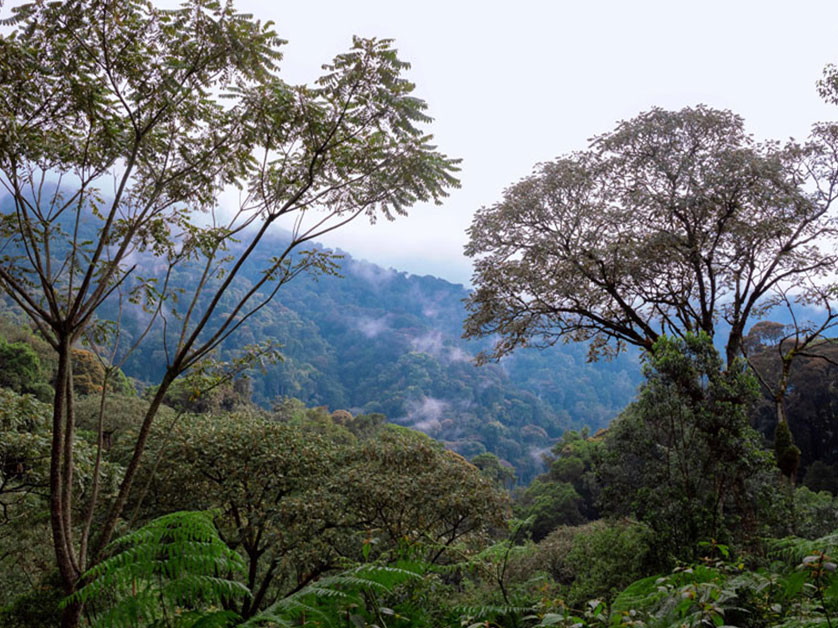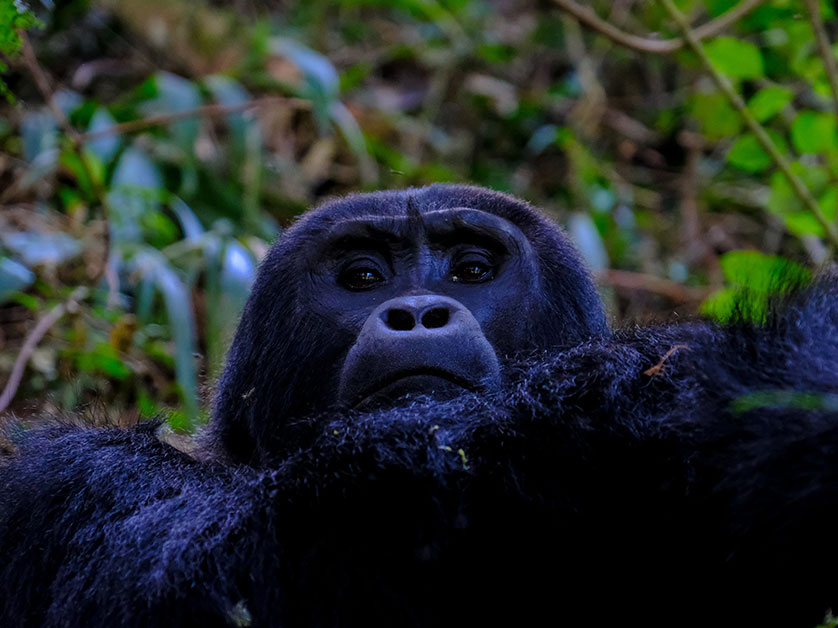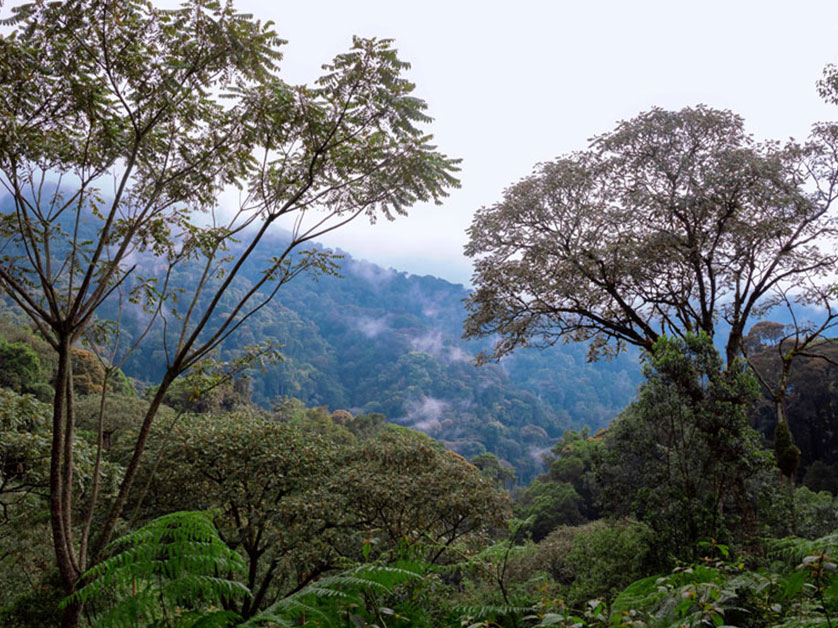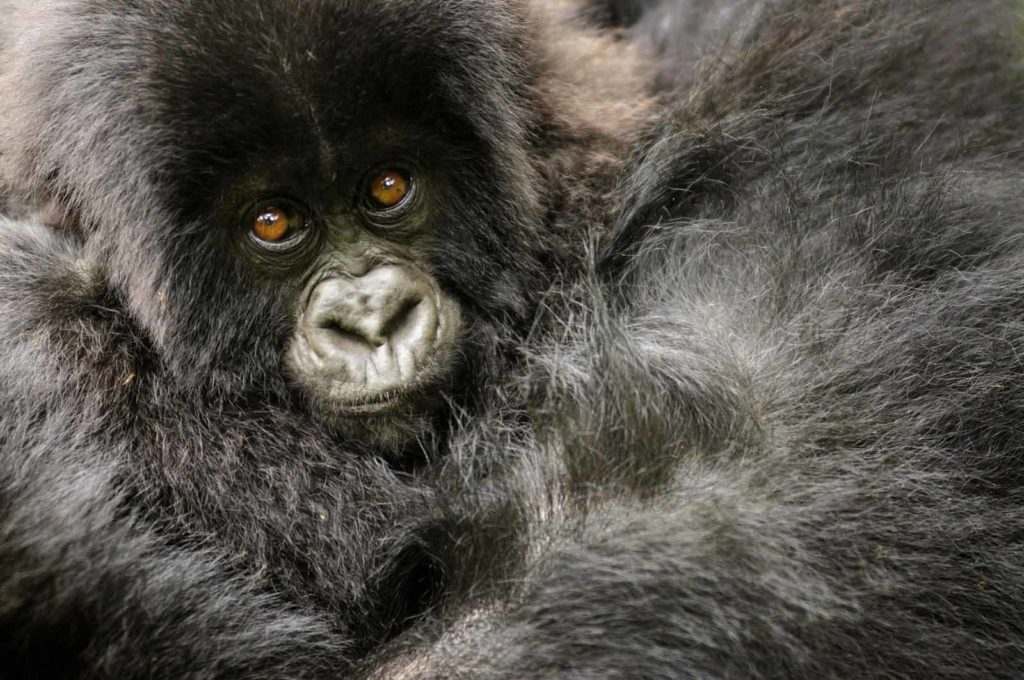Why visit Uganda for gorilla tracking in Bwindi: Uganda, the "Pearl of Africa," is a…

What is Bwindi Impenetrable Famous for?
What is Bwindi Impenetrable Famous for; Nestled within the heart of East Africa, Bwindi Impenetrable Forest stands as a testament to the breathtaking beauty and ecological significance that characterize the region. This lush expanse of wilderness, located in southwestern Uganda, is renowned for its rich biodiversity, notably as the home of the endangered mountain gorillas. However, Bwindi Impenetrable Forest’s fame extends beyond its charismatic primate inhabitants, encompassing a mosaic of ecosystems, cultural heritage, and conservation efforts that converge to make it one of the most unique and precious natural landscapes on Earth.
Bwindi Impenetrable Forest is famous for its biodiversity hotspot, harboring an astonishing array of flora and fauna. The forest’s altitudinal variation, ranging from 1,160 to 2,607 meters above sea level, creates distinct habitats that support a diverse range of species. The dense undergrowth and towering trees are home to more than 400 plant species, including rare and endemic ones. The forest’s impenetrable nature, characterized by thick vegetation and tangled vines, adds an extra layer of intrigue, making it a challenging yet rewarding destination for researchers and nature enthusiasts.
One of the forest’s most celebrated inhabitants is the mountain gorilla (Gorilla beringei beringei). Bwindi Impenetrable Forest is home to approximately half of the world’s remaining mountain gorilla population, making it a critical stronghold for the conservation of this endangered species. Trekking through the forest in the company of experienced guides offers a rare and awe-inspiring opportunity to witness these gentle giants in their natural habitat, fostering a deep connection between visitors and the importance of preserving these majestic creatures.
Bwindi Impenetrable Forest has been designated as an Important Bird and Biodiversity Area (IBA), underscoring its significance for global bird conservation. Avian enthusiasts are equally captivated by Bwindi’s avifauna, with over 350 bird species recorded, including 23 Albertine Rift endemics. The vibrant plumage and melodious calls of species such as the African green broadbill and the handsome francolin contribute to the auditory and visual symphony that defines the forest.
Bwindi Impenetrable Forest is famous for being deeply intertwined with the cultural heritage of the local communities. The Batwa people, often referred to as the “Keepers of the Forest,” have lived in harmony with the forest for generations, relying on its resources for sustenance and traditional medicine. The Batwa’s intimate knowledge of the forest’s flora and fauna has become an invaluable asset in conservation efforts, emphasizing the importance of involving indigenous communities in the protection of their natural heritage.
Bwindi Impenetrable Forest is famous for conservation efforts. Recognizing the fragility of Bwindi’s ecosystems and the importance of its resident species, concerted conservation efforts have been initiated to safeguard this natural treasure. The establishment of Bwindi Impenetrable National Park in 1991 marked a pivotal moment in the forest’s conservation history, providing a legal framework for protection and sustainable management. Ongoing initiatives, such as anti-poaching patrols, community-based conservation programs, and habitat restoration projects, demonstrate a commitment to preserving Bwindi for future generations.
In conclusion, Bwindi Impenetrable Forest’s fame is multifaceted, stemming from its unparalleled biodiversity, cultural significance, and ongoing conservation efforts. This natural jewel encapsulates the delicate interplay between ecological conservation and cultural heritage, illustrating the profound connections that bind humans and nature. As global awareness of the need for environmental stewardship grows, Bwindi serves as a beacon, reminding us of the importance of preserving our planet’s irreplaceable wonders for the benefit of all living beings.


